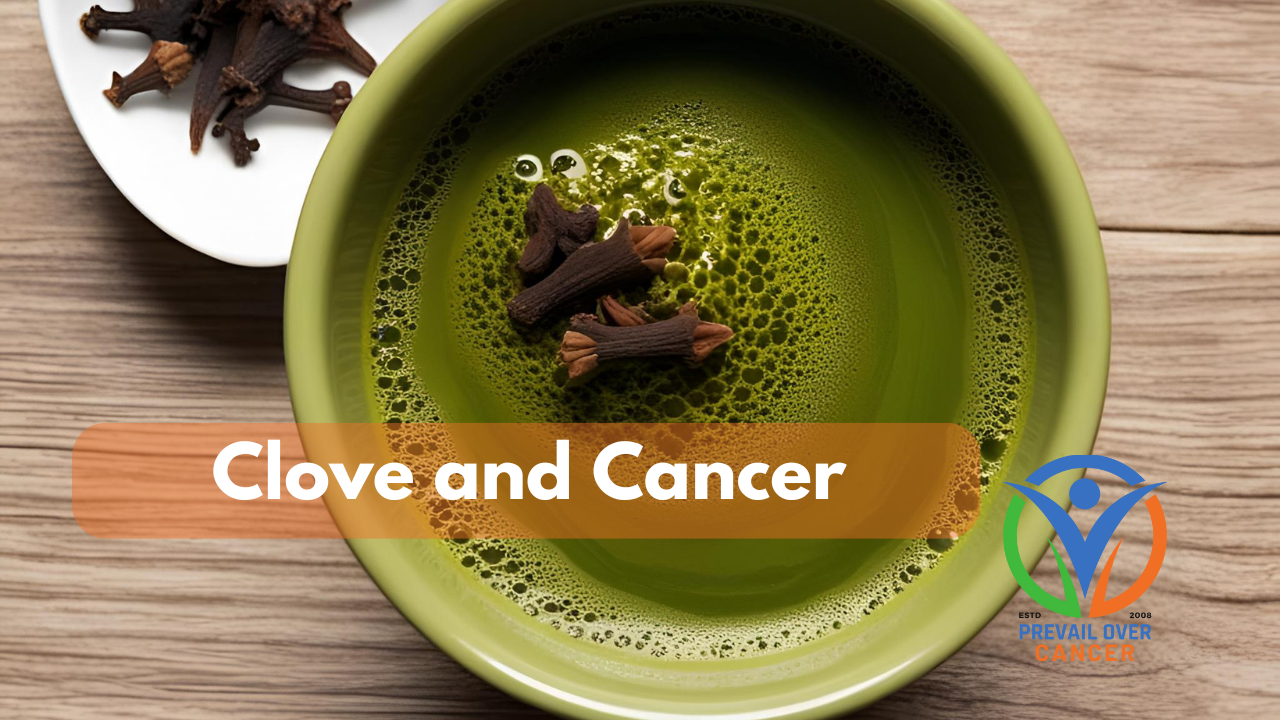Clove and Cancer

Researched and written by Keith Bishop, Clinical Nutritionist, Cancer Coach, and Retired Pharmacist.
Cloves are the dried flower buds of the evergreen tree Syzygium aromaticum. They are commonly used as a cooking spice and have been used in traditional medicine for centuries.
Clove, a spice native to Indonesia's Maluku Islands, has been esteemed for centuries in traditional medicine systems such as Ayurveda and Traditional Chinese Medicine (TCM). Historically, it has been utilized to address many ailments, including dental pain, digestive issues, respiratory conditions, and reproductive health concerns. The therapeutic properties of clove are attributed mainly to its rich phytochemical composition, notably eugenol, eugenol acetate, and β-caryophyllene, which confer antimicrobial, anti-inflammatory, analgesic, and antioxidant effects.[i]
In traditional practices, cloves were commonly employed to alleviate toothaches and oral infections, owing to their potent analgesic and antis...
The Power of Beans: A Weapon Against Cancer

Beans and Legumes are a much-needed weapon against cancer.
Beans and legumes, the humble staples of many global cuisines, are gaining recognition in the scientific community for their potential role in reducing the risk and mortality of many diseases and cancer. This blog post will delve into the research behind these claims, shedding light on why I put beans and legumes in my Cancer Food Pyramid Tactic.
What are Beans and Legumes?
Beans and legumes are the fruits or seeds of a family of plants called Fabaceae. They are rich sources of fiber, essential vitamins and minerals, and plant-based protein. Common examples include chickpeas, lentils, peas, kidney beans, black beans, soybeans, pinto beans, navy beans, and peanuts.[1]
Learn How to Select a Quality Dietary Supplement
Nutritional Powerhouses
Beans and legumes are high in minerals and fiber without the saturated fat found in some animal proteins. They are rich in plant protein, fiber, B-vitamins, iron, folate, calcium,...
Nuts and Cancer Risks and Mortality
Nuts and Cancer - Nuts may be considered a cancer superfood because they contain additive and/or synergistic properties that contribute to reduced cancer risk.
Researched and written by Keith Bishop, Clinical Nutritionist, Cancer Coach, Retired Pharmacist, and Founder of Prevail Over Cancer
Nuts are a rich source of monounsaturated and polyunsaturated fatty acids, tocopherols, antioxidant polyphenols, fiber, prebiotics, vegetable protein, minerals, and vitamins. Fiber and prebiotics can promote the growth of beneficial bacteria in the gut microbiome.[i]
Nuts can decrease glucose, insulin, and inflammation levels.[ii] [iii] All of which can increase the risk or even stimulate cancer if elevated.
A human genetic study of women with breast cancer found that consuming 2 oz (60 grams) of walnuts a day for 2 weeks improved 456 cancer-prevention and cancer-growth genetic pathways. Analysis of the data showed activation of pathways that promote apoptosis (normal cancer cell death), help k...




